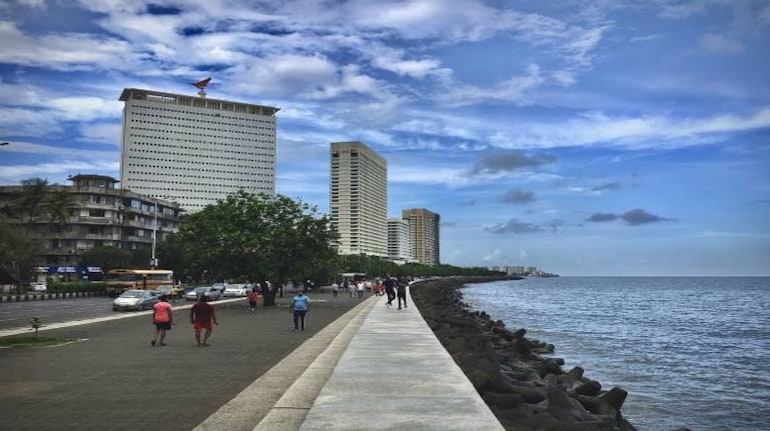
The coronavirus pandemic has had a severe impact on private equity investment activity in the real estate sector with only five deals getting sealed in 2020. The investment in 2020 at $238 million was down 93 percent over last year, according to Knight Frank India.
The year has also seen 80 percent drop in the number of deals concluded in the first five months when compared to the same period last year, Knight Frank said in its report titled Investments in Real Estate.
Sharp slowdown in the domestic economy and specifically real estate sector will keep the investors cautious. Moreover, challenges such as a recall of capital by Sovereign Wealth Funds and Pension funds to give bailout in their home countries and the emergence of attractive opportunities in the developed economies on account of a drop in valuations due to recession would cast its shadow on the PE investments in Indian real estate in 2020, as per the report.
After rising for four consecutive years, the private equity investments in office assets declined in 2019. The lack of mature office assets is forcing investors to look at opportunities in under-construction assets and greenfield developments.
In the office segment space, so far in 2020, only two deals amounting to $141 million have been concluded and 2.9 million square feet of office space got transacted in the year.
After rising for four consecutive years, the private equity investments in office assets declined in 2019. The lack of mature office assets is forcing investors to look at opportunities in under-construction assets and greenfield developments, the report stated.
The risk premiums associated with India and office assets would also increase due to the pandemic. Further, the cycle of strong office rental growth witnessed in India over the last few years is also expected to taper down or stagnate on account of lower occupier demand, impacting valuations, the report said.
Moreover, the G-sec yields would not come down in line with the repo rate cuts on account of greater government borrowings and breach of fiscal deficit targets. Investors are in a wait and watch mode and are likely to slow down their investments in office assets in India and on account of all the above factors, the capitalisation rates are expected to expand from 2019 levels, it said.
Residential may find it challenging to attract private equity capital
In the past few years, private equity investors’ preference for investing in residential assets has shifted from equity to debt or structured debt instruments. In 2020, there has been only one private equity investment in the residential sector worth $40 million.
The share of PE investments in the real estate space has come down from 60 percent to 11 percent, the report said.
Residential sales were already slow and the demand from homebuyers is expected to dwindle in 2020. On the supply side, the segment is already witnessing consolidation. Overall, the recovery in this segment will get further delayed and the residential sector will find it further challenging to attract private equity capital, the report said.
Retail may be among the last segment to recover
The year 2020 looks to be a bleak year for the retail segment and may not witness much investor activity over the next 12 months. Investors are now associating much greater risk with retail assets compared to office and accounting for longer periods of no rentals or lower rentals in their financial models in the near term on account of revenue share arrangements.
Lower investor appetite, G-sec yields not compressing as much as repo cuts, rental degrowth on account of revenue share and heightened risk perceptions would lead to a significant expansion of cap rates for retail assets and take it much higher than office, which was contrary to the scenario in the pre-COVID years, the report said.
Limited impact of COVID on the warehousing segment
Private equity investors have invested over $7.3 billion in the warehousing industry in the previous decade with 78 percent of the investments going towards creating new assets.
The $5.6 billion worth of investments which has gone into new developments are expected to create over 300 mn sq ft of warehousing space in the coming years.
In 2020, only two deals were concluded, suggesting an overall investment volume decline in warehousing space due to COVID-19 induced lockdown. However, the adverse impact of the pandemic on the warehousing segment will be relatively less compared to other asset classes.
Warehousing segment will be supported by a significant shift in supply chain management methods and renewed growth in e-commerce business. The rising share of e-commerce will to some extent mitigate the adverse impact of lower demand from the other segments, the report said.
“The decline in PE investments in real estate had started as visible in 2019 when it fell by 23% YoY to $6.8 billion. Having enforced one of the most stringent lockdown measures globally, 2020 would be a challenging year for Indian businesses. The recall of undeployed capital by sponsors, the emergence of attractive opportunities globally, increase in risk premiums, contraction in Indian GDP and COVID-19 related uncertainties would cast its shadow on investor sentiments and we expect the investor activity to be subdued in 2020," said Shishir Baijal, Chairman and Managing Director, Knight Frank India.
Discover the latest Business News, Sensex, and Nifty updates. Obtain Personal Finance insights, tax queries, and expert opinions on Moneycontrol or download the Moneycontrol App to stay updated!